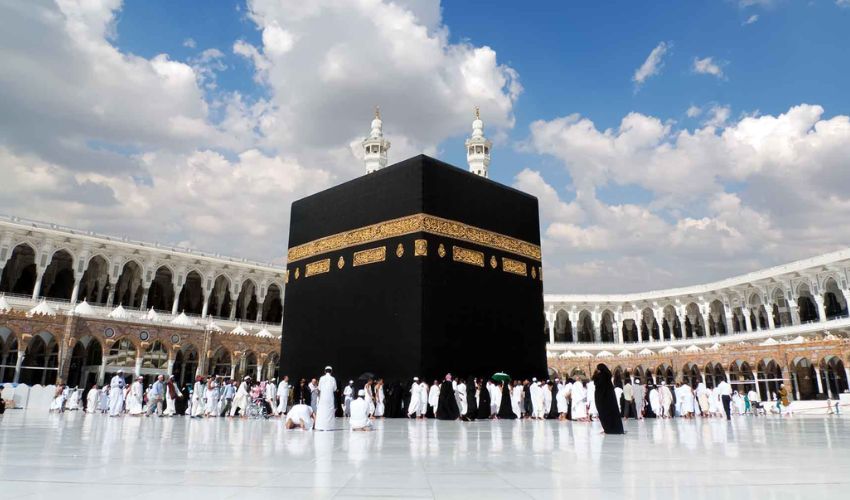Hajj Pilgrims
The Pakistani government has launched a new initiative designed to alleviate the financial challenges faced by low and middle-income citizens planning to embark on the Hajj pilgrimage.
This initiative seeks to make the sacred journey more accessible and manageable for those who may struggle with the upfront costs associated with it.
To address these financial concerns, a proposal has been put forward that would allow pilgrims to pay for their Hajj expenses in three installments instead of requiring a lump sum payment.
This proposal is currently awaiting approval from the federal cabinet. The overall cost for performing Hajj is estimated to be around Rs1.1 million, making it a significant financial commitment for many families.
Under the proposed payment structure, pilgrims would first need to make an initial payment of Rs200,000 when applying for Hajj. After being selected through a lottery system, they would be required to pay an additional Rs400,000.
The remaining balance would then need to be settled before the pilgrims depart for Saudi Arabia. This phased payment plan is designed to ease the financial burden, enabling a broader segment of the population to participate in the pilgrimage.
Officials from the Ministry of Religious Affairs have emphasized that this installment option is particularly aimed at assisting those who might find it difficult to pay the entire amount upfront.
In addition to the new payment structure, the latest Hajj policy establishes a quota for 179,000 Pakistani pilgrims, which will be evenly split between government and private tour operators.
Special allocations will also be made for individuals facing hardship and low-income workers, ensuring that the opportunity to perform Hajj is available to those who need it most.
Furthermore, the new guidelines implement restrictions to ensure the safety and health of all participants.
Notably, children under the age of 12 will not be permitted to partake in the pilgrimage, and there will be health requirements in place, including the necessity for medical certificates from individuals with serious health conditions.
This initiative highlights the government’s dedication to facilitating the Hajj experience for a wider array of citizens, demonstrating its commitment to ensuring that financial limitations do not obstruct individuals from participating in this deeply significant religious journey.
I am a dynamic professional, specializing in Peace and Conflict Studies, Conflict Management and Resolution, and International Relations. My expertise is particularly focused on South Asian Conflicts and the intricacies of the Indian Ocean and Asia Pacific Politics. With my skills as a Content Writer, I serve as a bridge between academia and the public, translating complex global issues into accessible narratives. My passion for fostering understanding and cooperation on the national and international stage drives me to make meaningful contributions to peace and global discourse.










